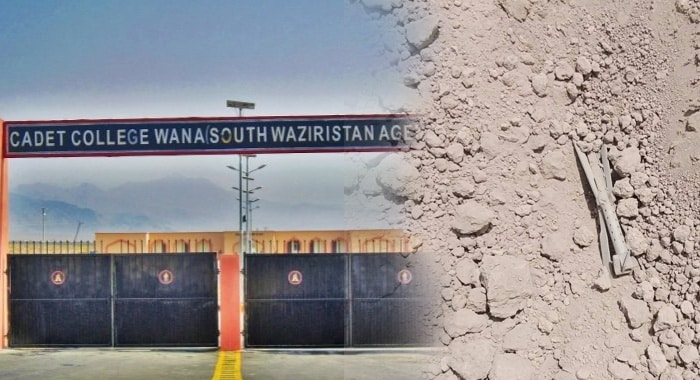In a brazen act of terrorism, militants believed to be affiliated with the Tehrik-e-Taliban Pakistan (TTP) launched a rocket attack on the Cadet College Wana on Tuesday, aiming to instill fear and disrupt academic activities in the volatile region. The rocket, fired from the direction of the Wana Bypass, landed within the college compound but miraculously caused no casualties or damage to infrastructure.
According to security officials and local sources, the attack was clearly intended to target a key educational institution and spread panic among students and faculty. “The rocket fell on an uninhabited portion of the college grounds. There were no injuries, but the intent was unmistakable to terrorize and intimidate,” said a senior official familiar with the investigation.
Shortly after the college attack, another rocket struck the under-construction residence of senior Awami National Party (ANP) leader and former provincial assembly candidate Taj Muhammad. The site, also located in Wana, had several laborers present at the time of impact, but no loss of life or injury was reported. Security sources confirmed that this second rocket was also fired from the vicinity of the Wana Bypass and bore hallmarks of TTP’s tactics, particularly its recent targeting of political opponents and civilian infrastructure.
The dual attacks—on an educational institution and a prominent political figure—underscore a worrying pattern of escalating militancy in South Waziristan. These incidents come amid growing fears that the TTP is reasserting its presence in the tribal belt, emboldened by recent cross-border sanctuaries and a lack of sustained counterterror operations in certain zones.
Law enforcement agencies have cordoned off the affected areas, launched a search operation, and are actively working to trace the perpetrators. Initial findings suggest the attackers used portable rocket launchers and operated from elevated ground near the bypass, allowing for long-range targeting.
Political leaders and civil society groups have condemned the attacks in the strongest terms. ANP leaders called it a direct assault on democratic voices, while education advocates warned of the psychological toll such incidents have on students in conflict-prone areas. “Targeting a cadet college is not just an attack on a building; it is an attack on the future of our children and the peace of the region,” said one local elder.
The twin strikes have renewed calls for the federal and provincial governments to reinforce security across South Waziristan, particularly around schools, political figures, and critical public institutions. Community leaders urged the state to adopt a zero-tolerance policy against militants who continue to threaten hard-won gains in peace and stability.





